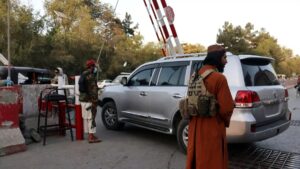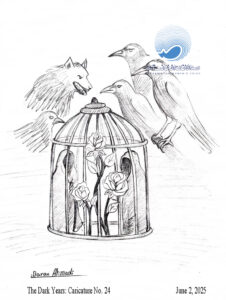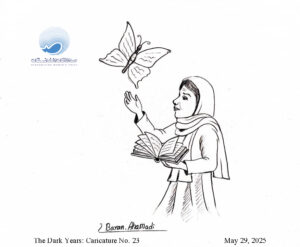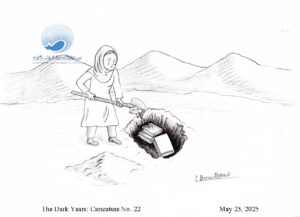In a chilling account of ongoing atrocities under Taliban rule in Afghanistan, the story of Abdulnasir Farakhari, a shopkeeper from Taleqan in Takhar province, highlights the group’s extreme brutality. Abdulnasir was arrested by the Taliban intelligence agents on 8 Hoot (February 26, 2025) and accused of financially supporting opposition groups. Four days later, his body was returned to his family, with Taliban officials claiming he died of illness. However, the evidence on his body—visible signs of torture and beatings—tells a starkly different story.
Abdulnasir, who ran an electronic shop in the Neelgari area of Taliqan, had no known ties to anti-Taliban forces. According to relatives, on the day of his arrest, Taliban agents prevented him from closing his shop. “He had no connections to any political or military opposition,” a relative told Etilaat Roz, a local news outlet. Despite the Taliban’s claims, his body bore marks of severe abuse: bruising on his face, chest, and limbs, along with broken bones in his arms and nose—clear indicators of torture.
This tragedy is not isolated but part of a broader pattern of systematic torture, forced disappearances, and suppression of dissent under the Taliban regime. After the incident, the Taliban imposed severe restrictions on local journalists, pressuring them to parrot their narrative that Abdulnasir died of an illness while detained in Kabul. Photographs released by his family, however, contradict this claim, revealing unmistakable signs of physical trauma.
Escalation of Military Control and Repression
The situation in Takhar and other regions has grown increasingly dire as Taliban forces tighten their grip. Recent reports cite heightened military activity, including curfews and house-to-house searches ordered by the new Taliban governor, Samiullah Hizbullah. A strict curfew now bars movement between 8 PM and 5 AM, enforced by threats of detention.
Torture and Ill-Treatment of Prisoners
Testimonies from former detainees and families expose the Taliban’s systematic brutality. Suspects endure beatings with metal rods, burns from heated objects, and psychological torment. Some die within days of arrest; others are denied medical care despite critical injuries.
The Case of Aliya Azizi: A Missing Advocate for Women’s Rights
The Taliban’s repression extends to Aliya Azizi, former head of Herat’s Women’s Prison. After her arrest and detention, she disappeared entirely. Despite efforts by her family and activists, her fate remains unknown. It is widely feared she was executed, joining the ranks of women silenced for challenging Taliban oppression.
The Silence of the International Community
Amid these atrocities, the international response has been woefully inadequate. While human rights groups and journalists document abuses, the Taliban stifles dissent through threats, intimidation, and violence. A climate of fear pervades Afghanistan, silencing ordinary citizens and obscuring the regime’s crimes.









